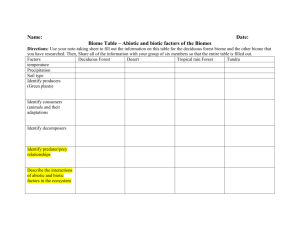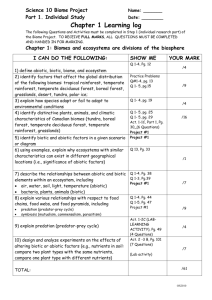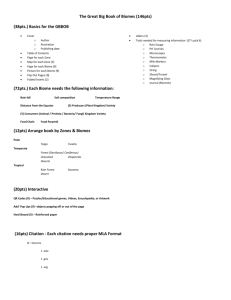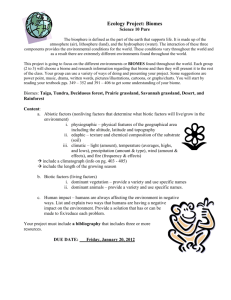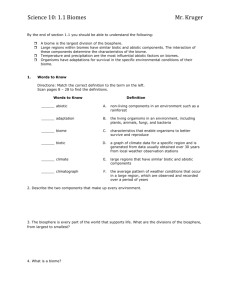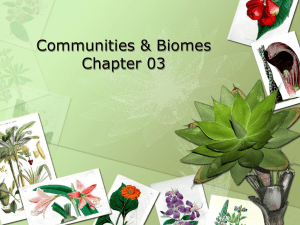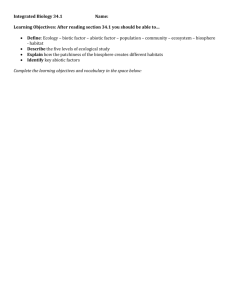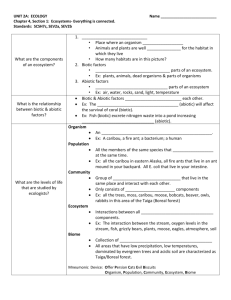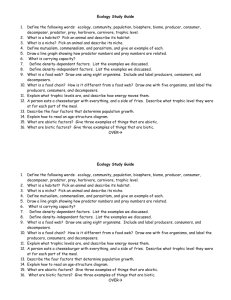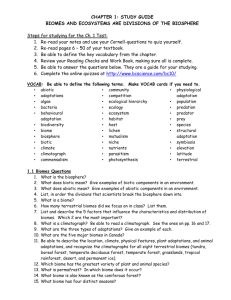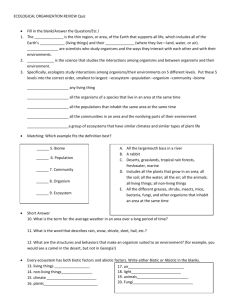MAJOR TERRESTRIAL BIOMES
advertisement
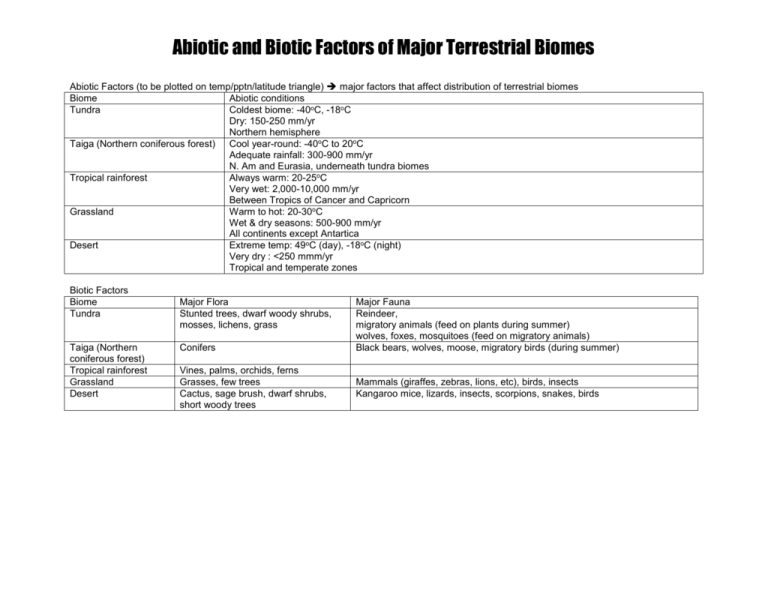
Abiotic and Biotic Factors of Major Terrestrial Biomes Abiotic Factors (to be plotted on temp/pptn/latitude triangle) major factors that affect distribution of terrestrial biomes Biome Abiotic conditions Tundra Coldest biome: -40oC, -18oC Dry: 150-250 mm/yr Northern hemisphere Taiga (Northern coniferous forest) Cool year-round: -40oC to 20oC Adequate rainfall: 300-900 mm/yr N. Am and Eurasia, underneath tundra biomes Tropical rainforest Always warm: 20-25oC Very wet: 2,000-10,000 mm/yr Between Tropics of Cancer and Capricorn Grassland Warm to hot: 20-30oC Wet & dry seasons: 500-900 mm/yr All continents except Antartica Desert Extreme temp: 49oC (day), -18oC (night) Very dry : <250 mmm/yr Tropical and temperate zones Biotic Factors Biome Tundra Taiga (Northern coniferous forest) Tropical rainforest Grassland Desert Major Flora Stunted trees, dwarf woody shrubs, mosses, lichens, grass Conifers Vines, palms, orchids, ferns Grasses, few trees Cactus, sage brush, dwarf shrubs, short woody trees Major Fauna Reindeer, migratory animals (feed on plants during summer) wolves, foxes, mosquitoes (feed on migratory animals) Black bears, wolves, moose, migratory birds (during summer) Mammals (giraffes, zebras, lions, etc), birds, insects Kangaroo mice, lizards, insects, scorpions, snakes, birds Abiotic and Biotic Factors of Major Terrestrial Biomes BIOME Tundra ABIOTIC BIOTIC INTERACTIONS permafrost + temp + winds + rainfall small plants only (roots close to H2O source) light for time plants grow and flower rapidly temp animals w/ fur, hibernate to conserve energy; no exothermic animals (e.g. reptiles, amphibians) insects survive winter as eggs/pupae presence of migratory animals only during summer (plants) Taiga snowfall needle-like leaves prevent breaking off leaves (Northern due to snow & water loss thru evaporation coniferous temp + cuticle on leaves hard to decompose nutrients in soil forest) animals: thick coat for insulation; hibernation to conserve energy summer drought fire-resistant leaves & cones able to start 2o succession Tropical rainforest closed canopy light reaches ground vines (climb on other plants, roots still in soil), epiphytes (grow on other plants, not in soil) Grassland drought + fires + grazing no woody shrubs and trees Desert rainfall pleated structure of cacti plants to store water; spines to prevent animals from obtaining water from them rainfall small plants only (roots close to water source) animals: nocturnal, burrowers
